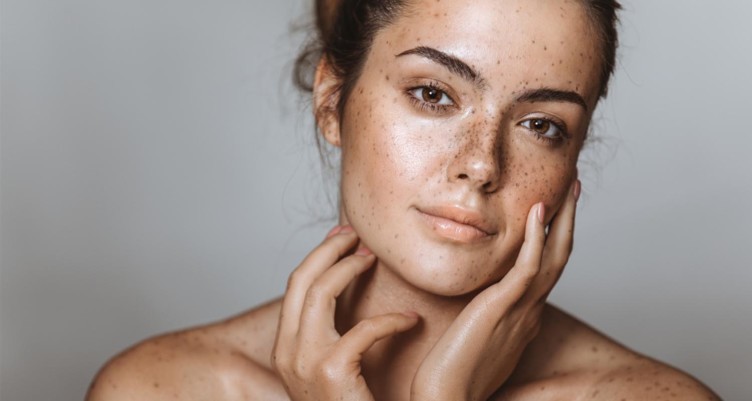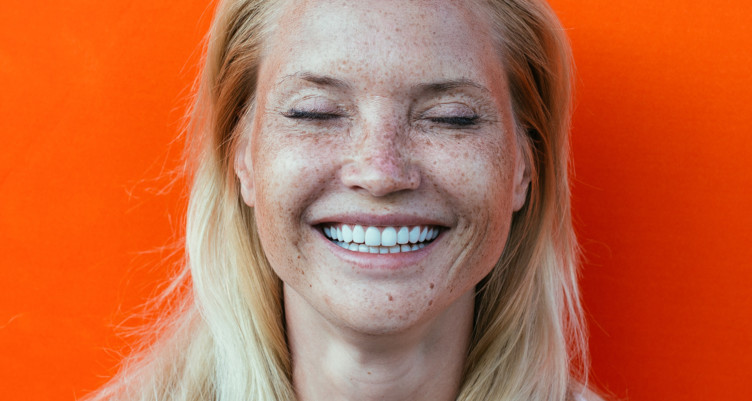COQ10 Benefits and How it Can Help Your Skin

- Coenzyme-Q10 (CoQ10) is a coenzyme that is naturally produced by the body. It is also found in foods like organ meats, avocados, and fish.
- CoQ10 helps support energy production and mitochondrial function. Studies have also shown CoQ10 can benefit the skin.
- Looking to increase your CoQ10 intake? Try Bulletproof CoQ10 Energy.†
In this “CoQ10 skin benefits” explainer, we take a closer look at how CoQ10 helps support skin health.
Coenzyme-Q10 (CoQ10), also known as ubiquinone-10, is a powerful antioxidant naturally produced by the body. CoQ10 plays a key role in cell growth and maintenance.[1][2] CoQ10 supplementation may help to support energy production and mitochondrial function.[3] It also may help protect the body against oxidative stress, support heart health and provide mental and physical support.† CoQ10 may support skin health maintenance, particularly when it comes to achieving a more youthful appearance.
What is Coenzyme q10 (CoQ10)?

Before we break down CoQ10’s many benefits, let’s dive into what CoQ10 is and why it’s so important. CoQ10 is a powerful antioxidant skin cells use for energy. It may support the body in protecting against oxidative damage and free radicals. It is a coenzyme, which means certain enzymes in the human body need it to function properly.
The body produces CoQ10 naturally, but the levels of CoQ10 the body produces and stores decline with age.[4] Avoiding CoQ10 deficiency is key. To keep CoQ10 levels up, consider adding certain antioxidant-rich foods to your diet such as:
- Organ meats
- Oysters
- Cruciferous vegetables
- Avocados
- Fish that are high in fatty acids like mackerel and sardines
It’s important to note that getting an adequate daily dose of CoQ10 solely through food is impossible. This would require consuming large serving sizes of the aforementioned foods. Think: eating over 150 avocados, pounds of mackerel and hundreds of oysters in one sitting.
Adding a CoQ10 supplement to your daily wellness routine is a simple solution. It is the easiest way to ensure the body receives what it needs to carry out essential functions. This includes CoQ10 skin benefits.
CoQ10 Skin Benefits

A randomized controlled trial study conducted at the Institute of Cosmetics in Ljubljana, Slovenia found that taking CoQ10 helped to reduce several signs of aging in the skin.[5] Researchers measured the effects of CoQ10 on skin hydration, skin thickness and skin elasticity. They also tracked the appearance of visible wrinkles. The researchers found that daily CoQ10 supplementation with 50mg and 150mg of CoQ10 over the course of 12 weeks improved every single one of these measures, compared to the controlled group that only supplemented with a placebo.
Similarly, scientists in the cosmetics industry have researched CoQ10 as an ingredient in topical creams.[6] A 2015 study that surveyed 75 female participants found the CoQ10 topical treatment to be effective. The topical treatment replenished ubiquinone (aka CoQ10) levels in “the deeper layers of the epidermis,” according to the study authors. This is important as CoQ10 and collagen work together to promote skin elasticity.
With the increase in studies and clinical trials over time, researchers have also found that CoQ10’s properties may help with aging in many ways.†
CoQ10 and Energy

There is a connection between CoQ10 and energy. CoQ10 helps mitochondria produce energy for skin cells, which helps the cells work more efficiently.[7] This may leave the skin to appear healthier and more youthful.
When you’re young, skin cells get their energy from mitochondria using oxygen. As you age, the energy metabolism in your skin cells shifts to a non-mitochondrial pathway. Scientists believe that this shift triggers the breakdown in skin structure which can contribute to wrinkles and sagging skin.[8]
Research shows that CoQ10 supports improved mitochondrial function in the human body. One study showed that it preserves your mitochondria so skin cells can get their energy via mitochondria longer, instead of switching to anaerobic energy production, which contributes to skin structure breakdown.
CoQ10 and structural proteins

Just like CoQ10, collagen is also naturally produced by the body. This abundant protein is also closely associated with skin health. In addition to serving as a building block for connective tissues and tendons, collagen supports hydrated skin and promotes skin elasticity.[9] As we grow older, the body’s natural collagen production declines. Collagen supplements can help.
Hw are CoQ10 and collagen connected? Collagen requires CoQ10 to do its job. Here’s how: CoQ10 turns on genes that make key proteins for skin structure and turns off genes that make collagenase, the enzyme that breaks down collagen.[10] CoQ10 protects the collagen you have and allows the skin to produce more.[11]
Bulletproof Unflavored Collagen Peptides provide your body with the support it needs for healthy hair, skin and nails.† It’s an easy way to incorporate collagen protein into your favorite drink, smoothie or morning cup of Bulletproof Coffee for a multi-dimensional form of support.
CoQ10 and Cell Damage

CoQ10 skin benefits include protecting skin cells against free radicals and oxidative stress from elements like the sun and pollution.[12] In addition, this antioxidant may help reduce the effects of occasional overexposure to UV rays.[13] Reducing the overexposure to harmful UV rays helps to prevent signs of premature aging, like wrinkles, dryness and sagging. Researchers have also shown that when topically applied, CoQ10 combats the appearance of dark spots,[14] promoting a more youthful, even skin tone.
CoQ10 side effects

CoQ10 supplements are generally safe when used as directed. Some people may experience an upset stomach and other digestive side effects when supplementing with CoQ10. Consult your healthcare provider before introducing a new supplement. Reading and understanding supplement labels is also crucial. Always check labels to ensure the body gets only the best science-backed ingredients.
How to choose a CoQ10 supplement

Which form of CoQ10 supplement is right for you? Like any dietary supplement, the type of benefit you’ll experience is dependent on the dosage of CoQ10 you take. For skin benefits, we recommend taking 50mg and 150mg of CoQ10 since this particular range has been studied in clinical trials.
Want to learn more about ways to support your brain and body? Check out our list of natural energy supplements.
Sign up for early access to sales, product launches, the latest Bulletproof news and more!
This article has been updated with new content.



